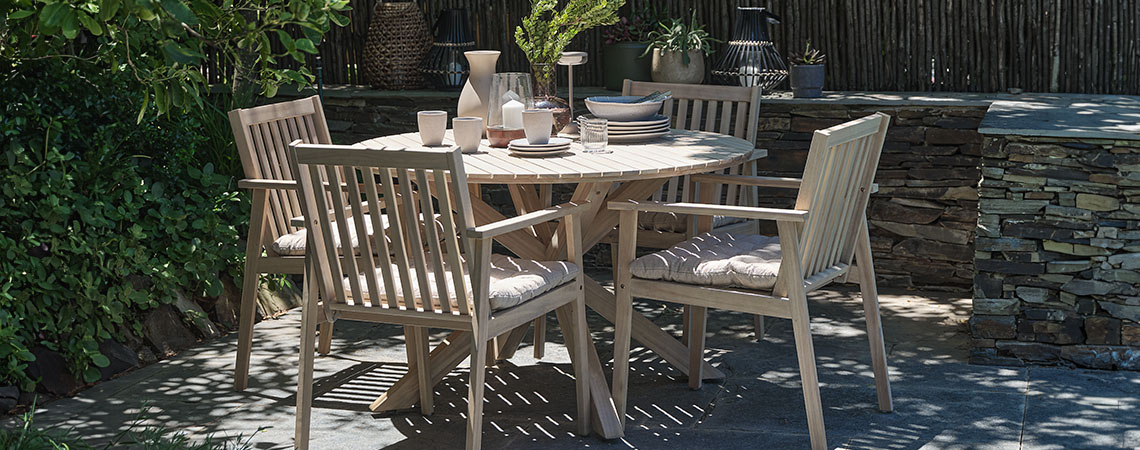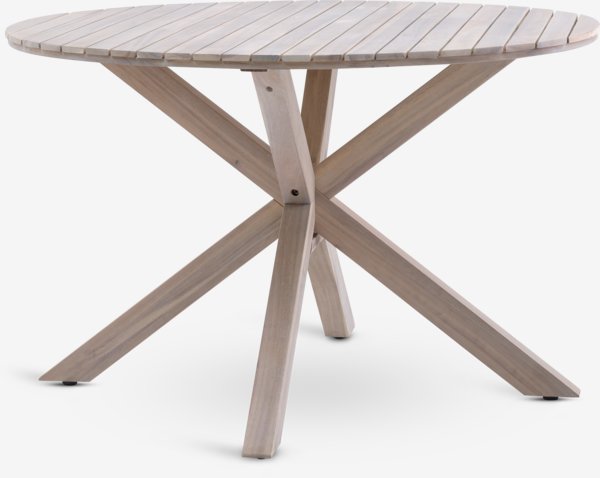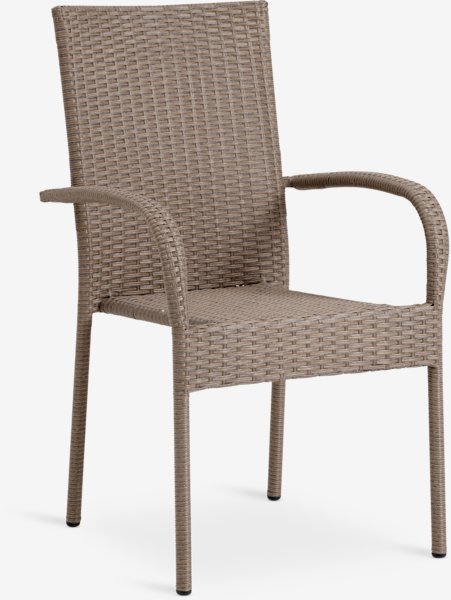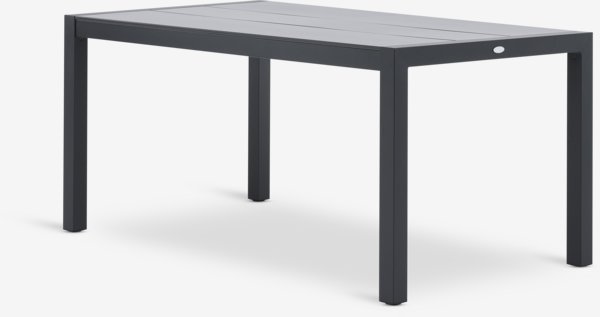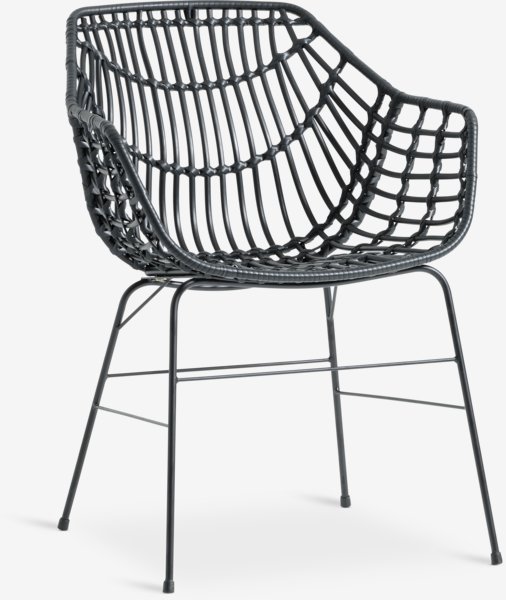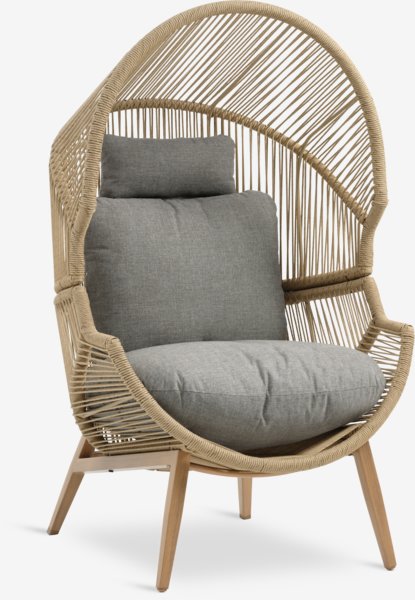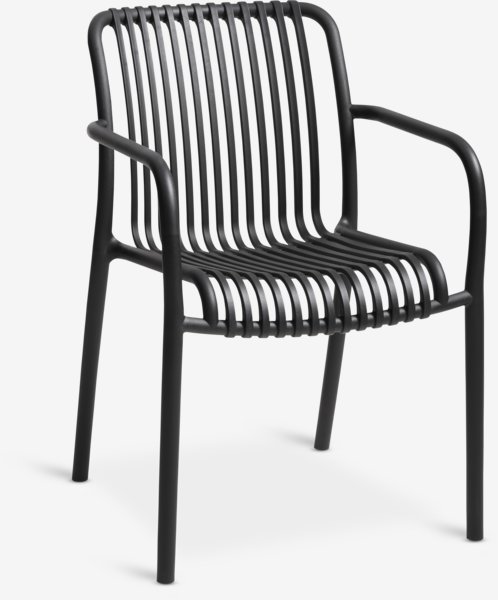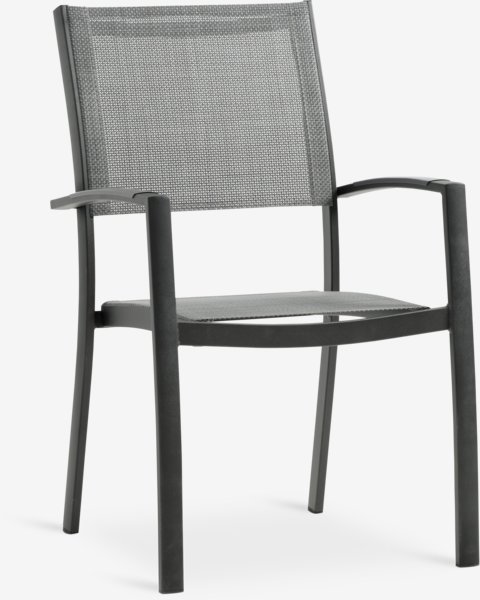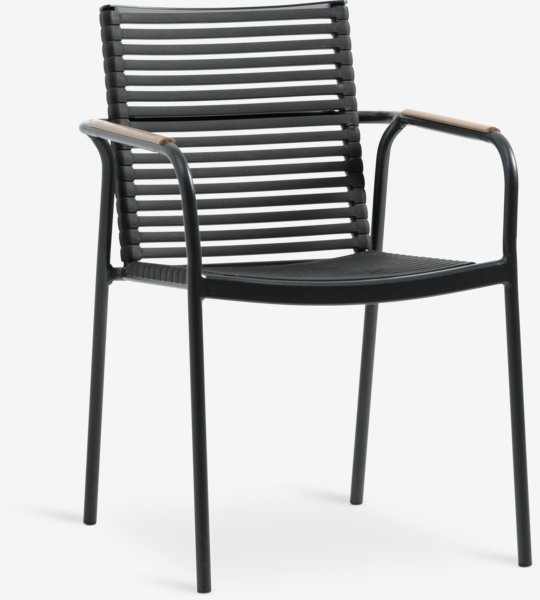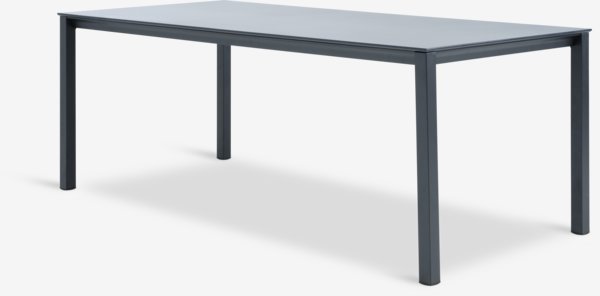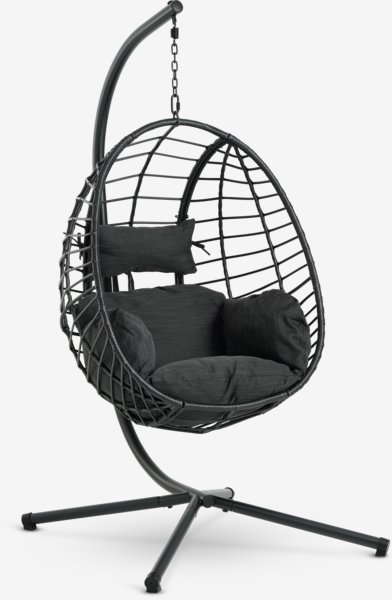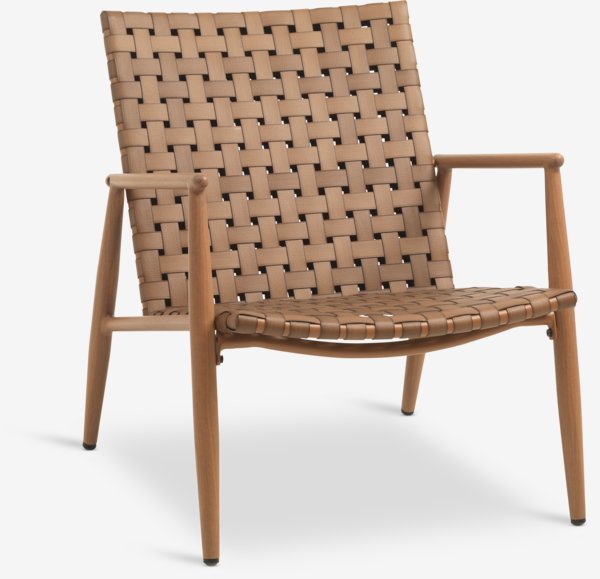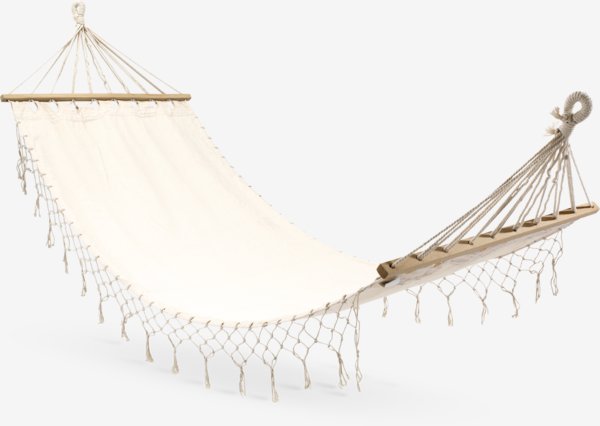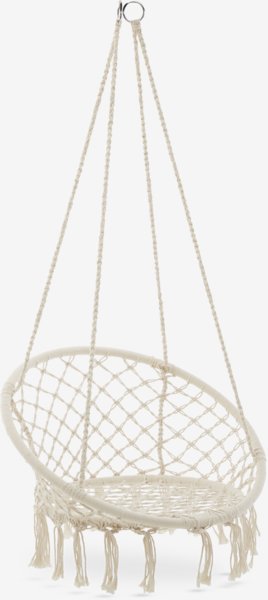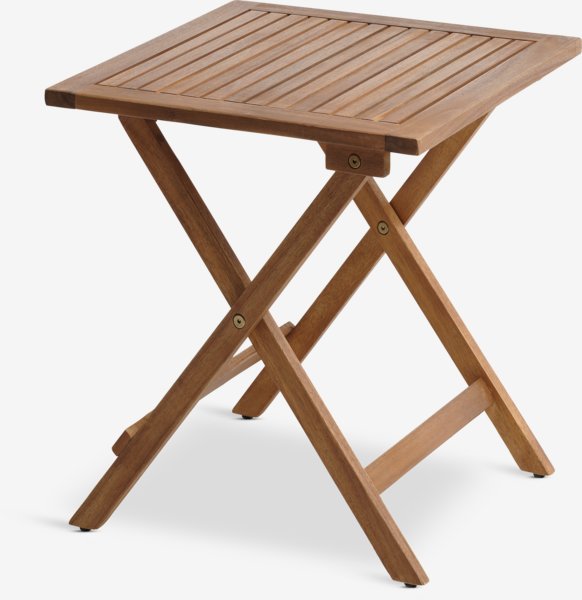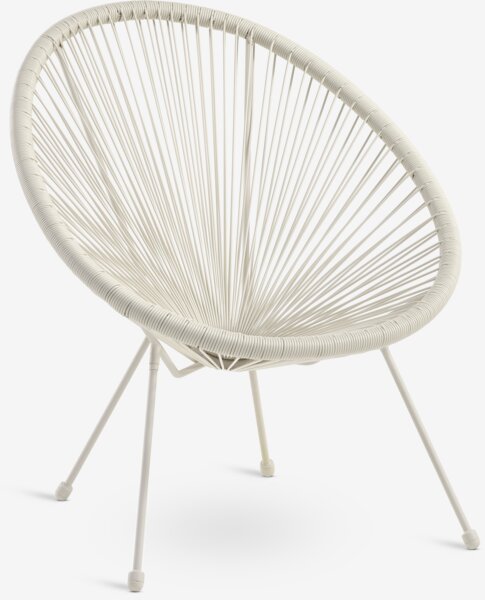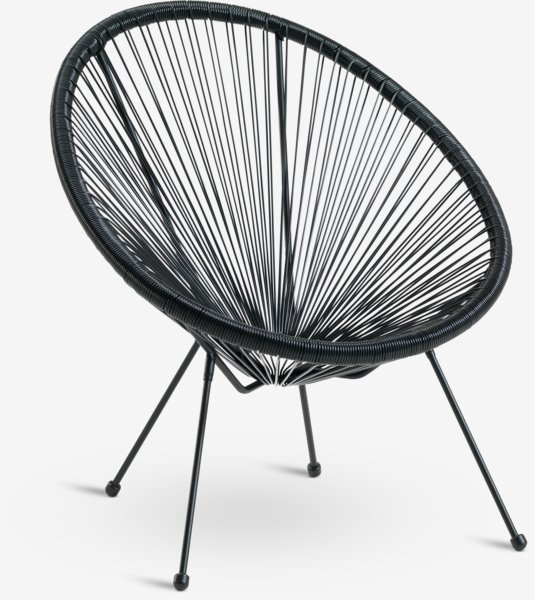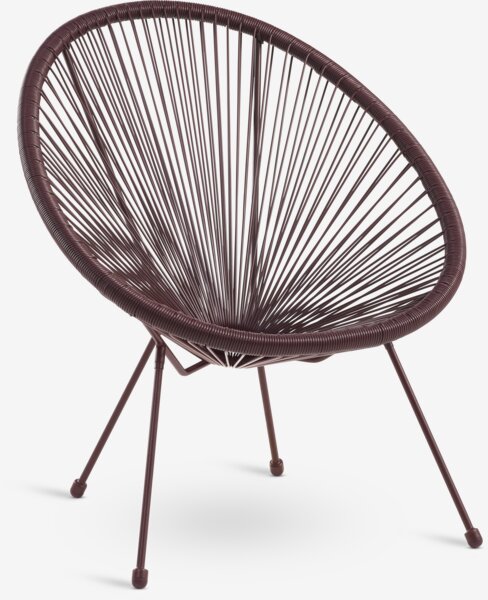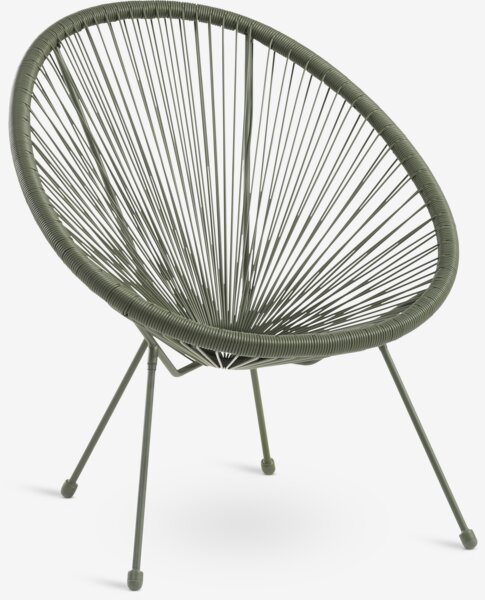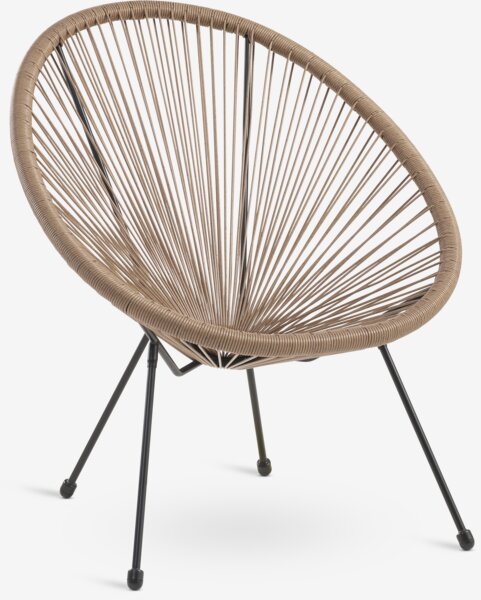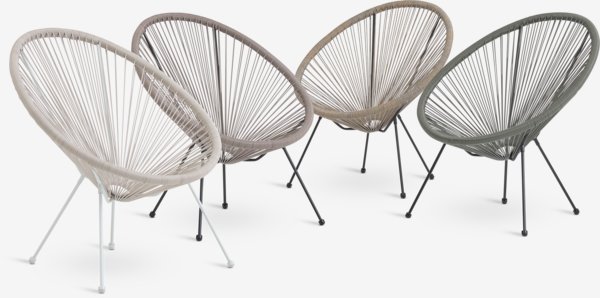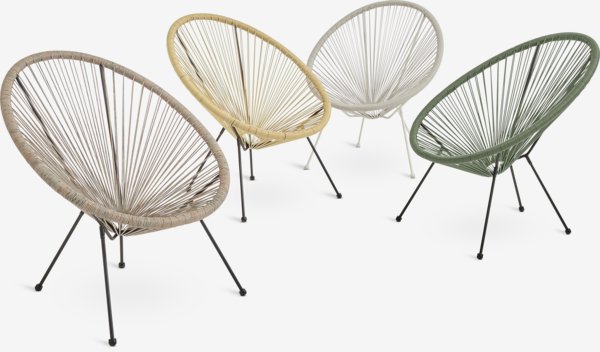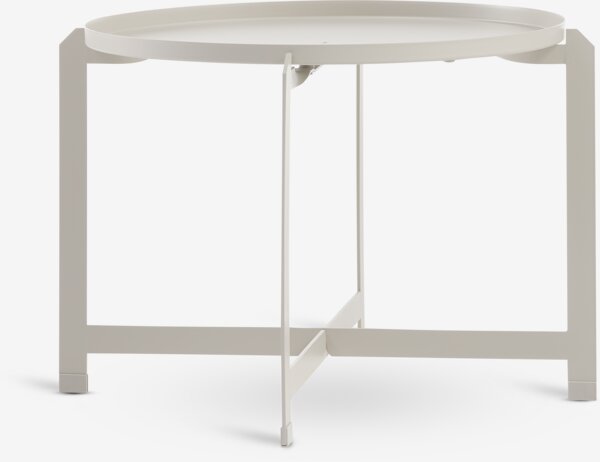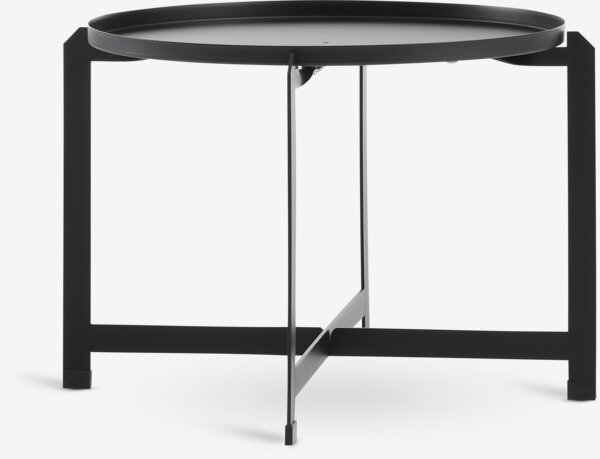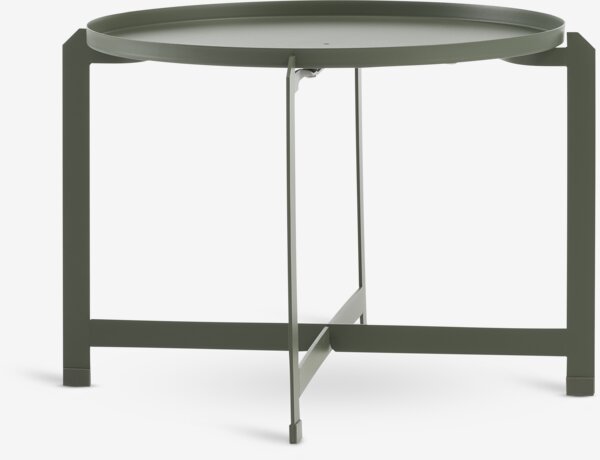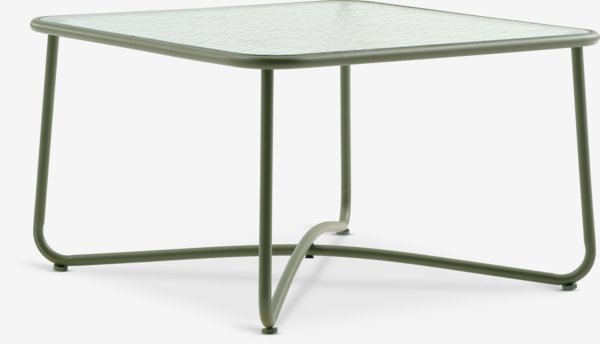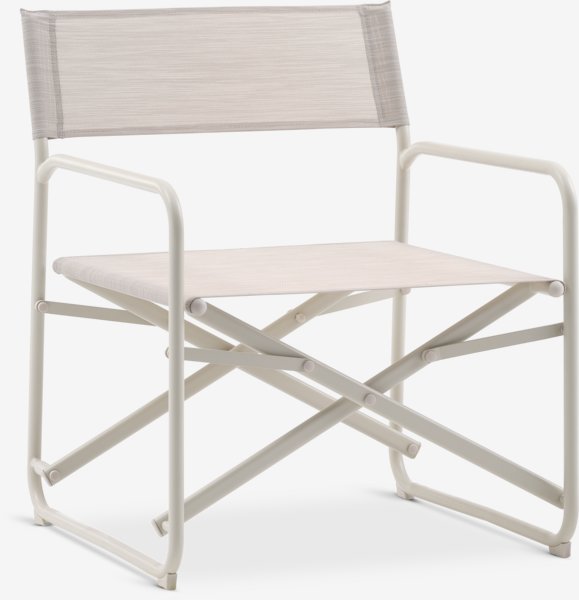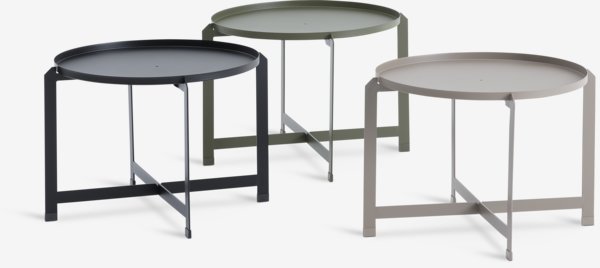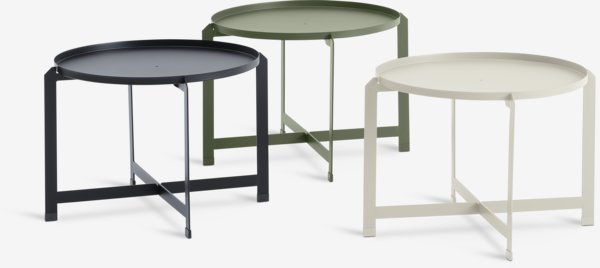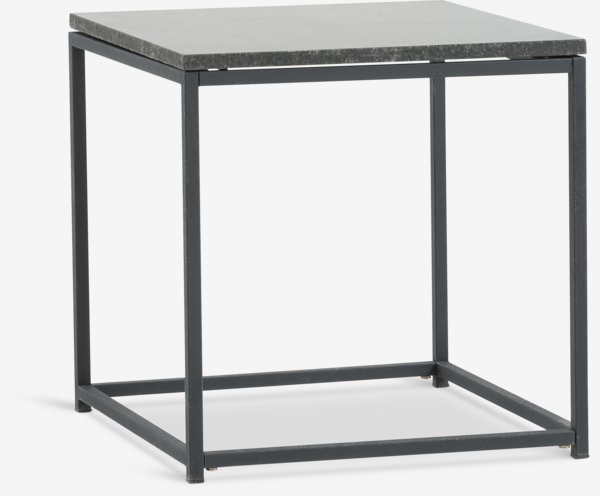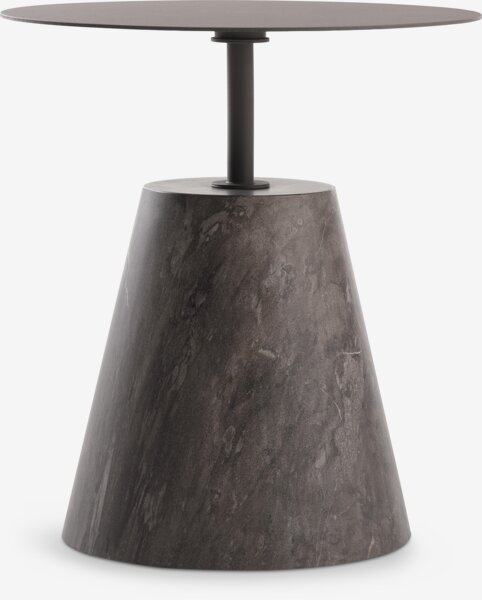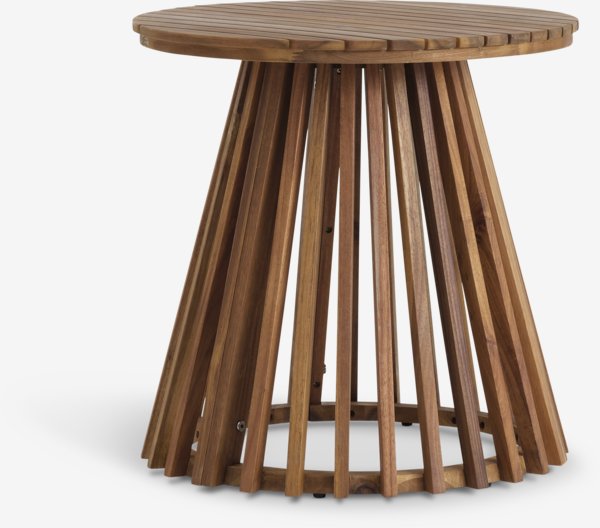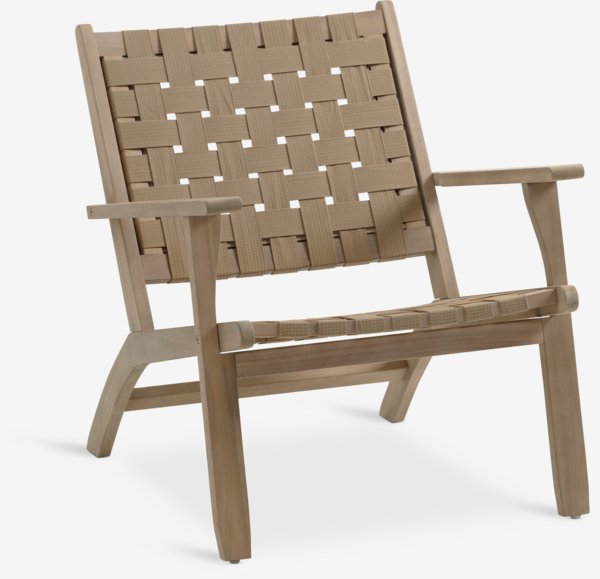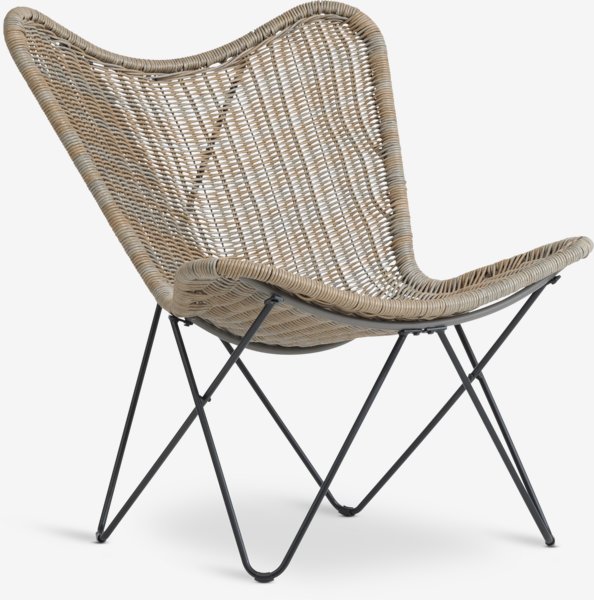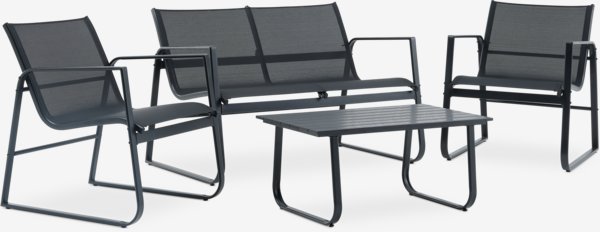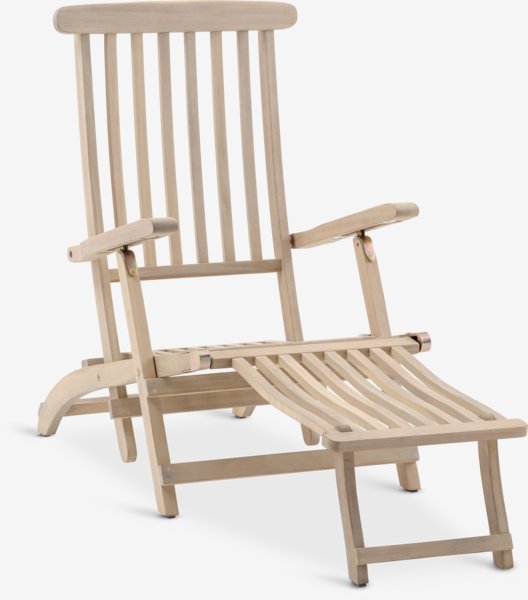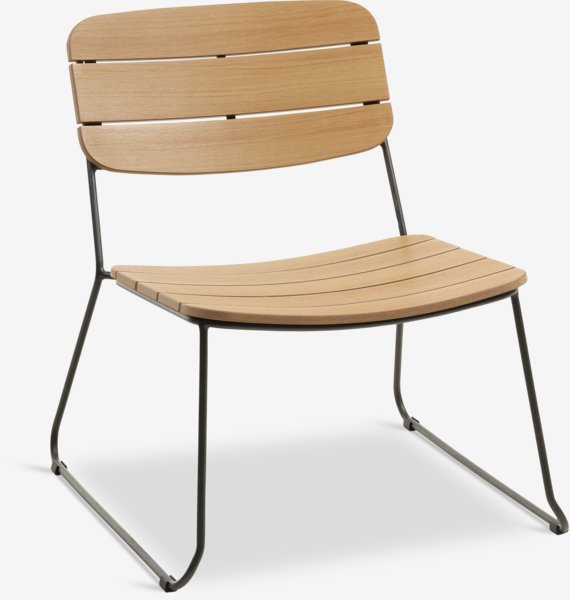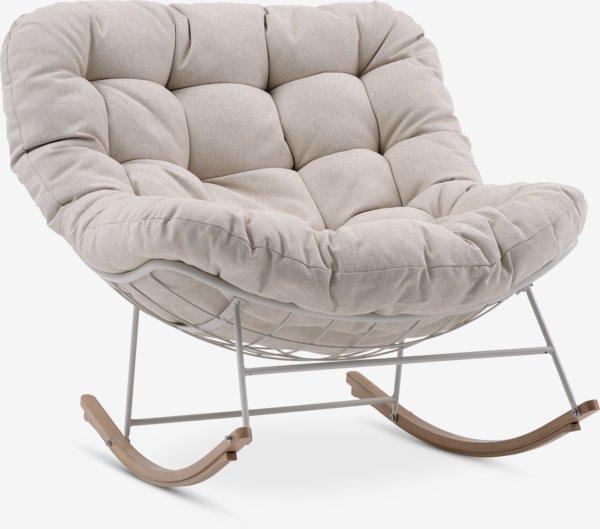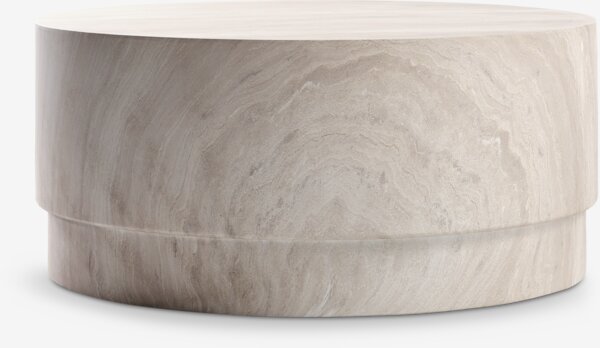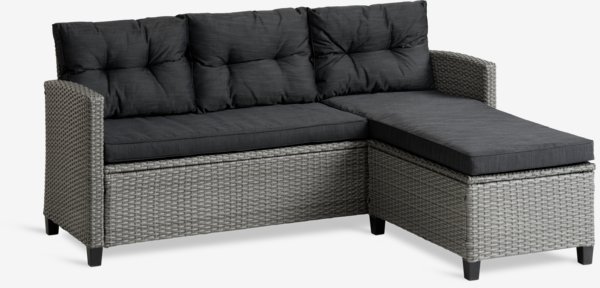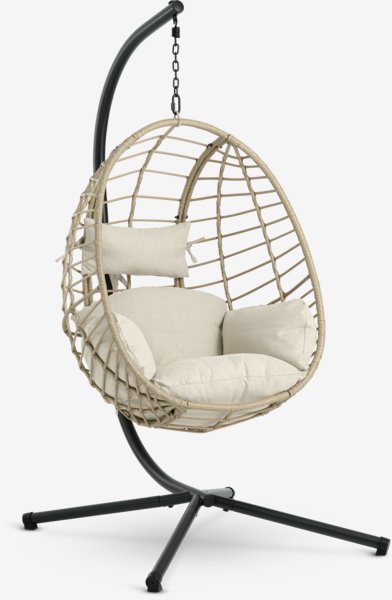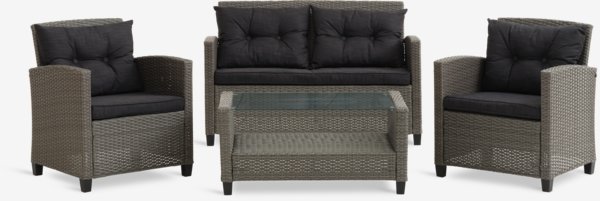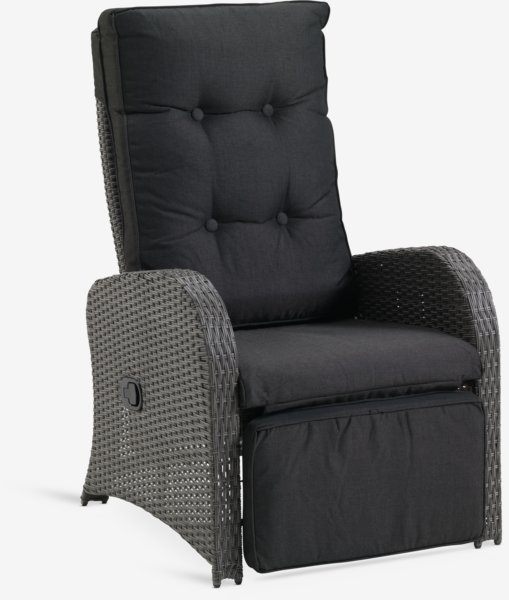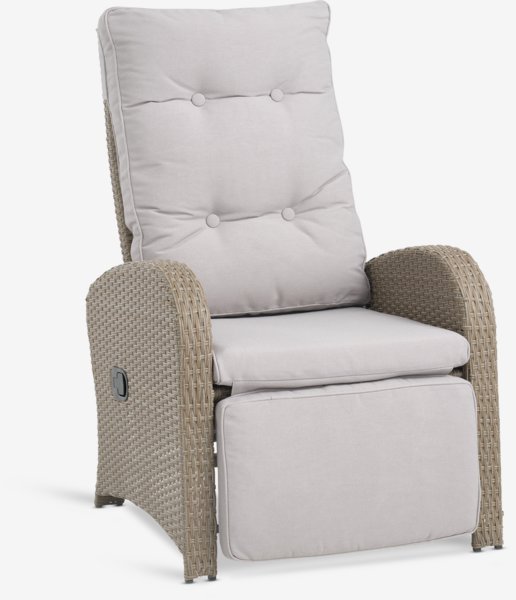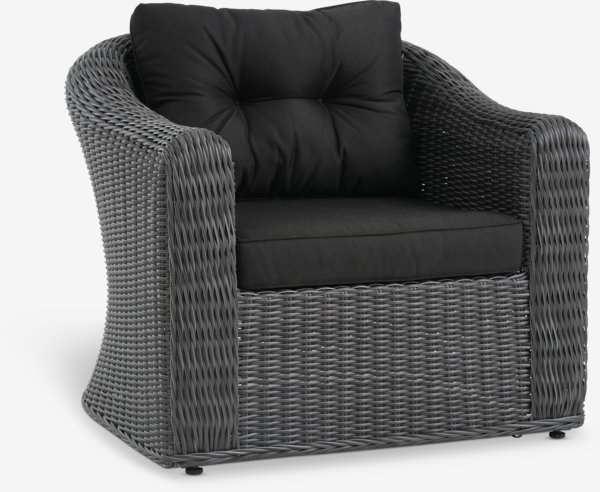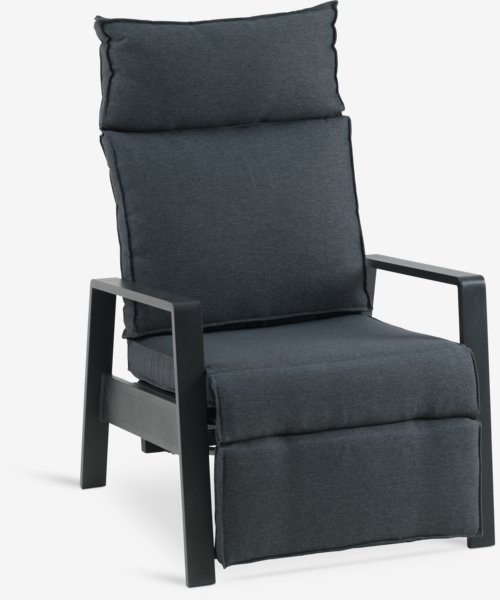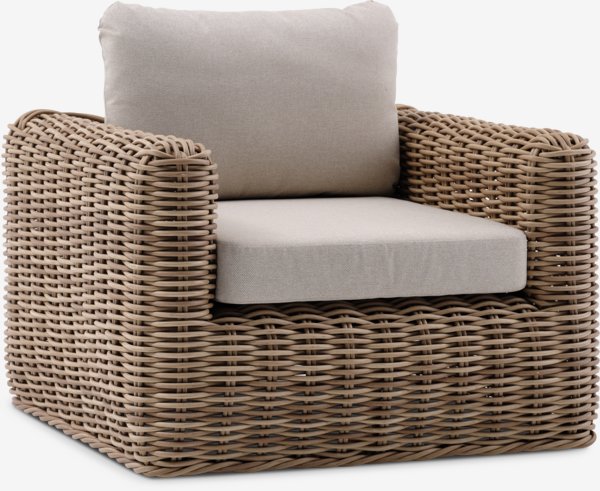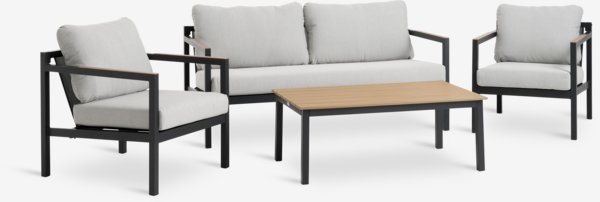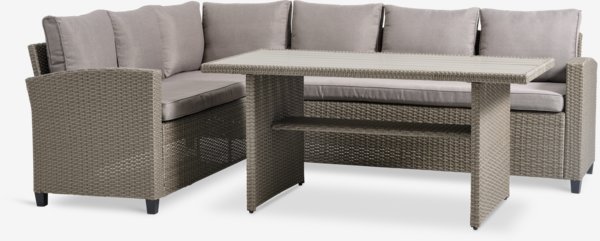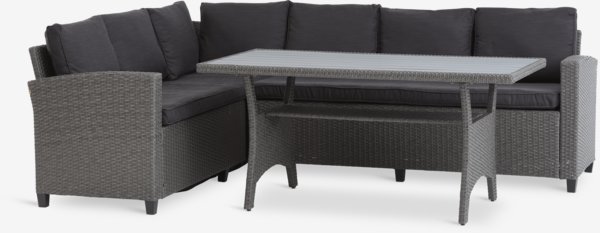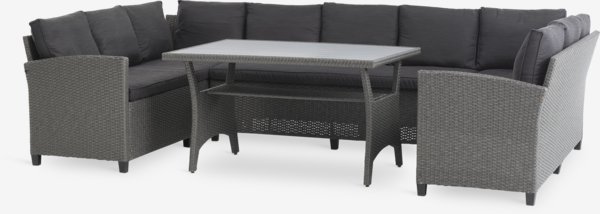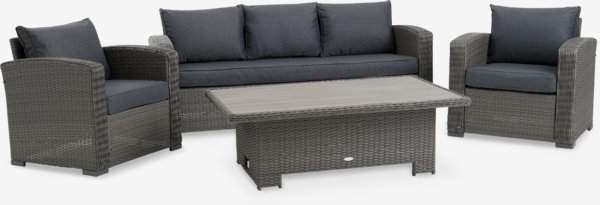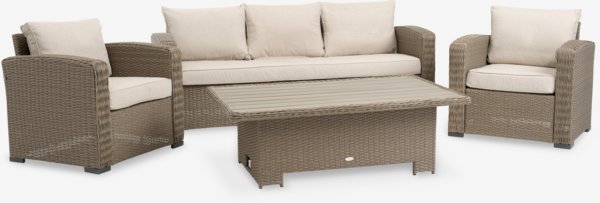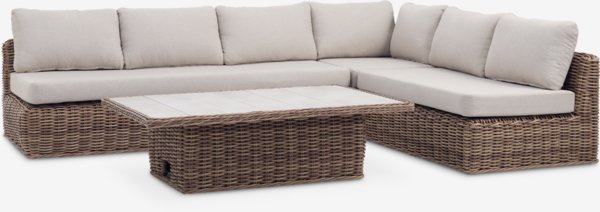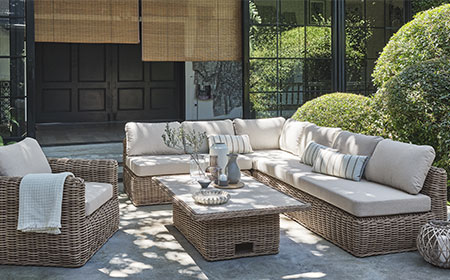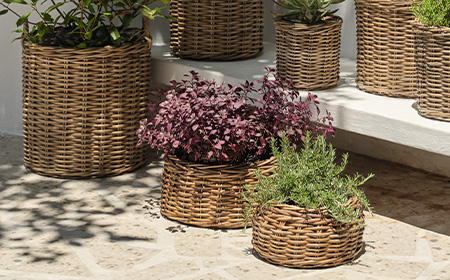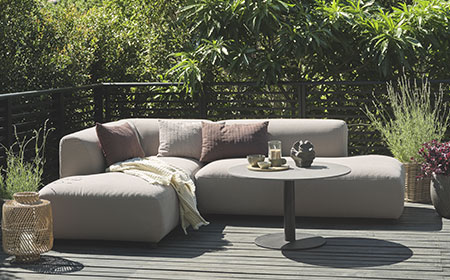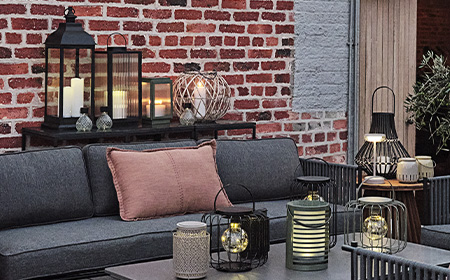Are you on the lookout for new furniture for your outdoor spaces? In addition to style, size, and budget, the material that the furniture is made with should play a crucial role in your decision-making process. Whether you are seeking the perfect set of furniture for your garden, patio, balcony, or any other outdoor area, it is essential to find furniture that not only complements your aesthetic but also can weather the storm and withstand the elements to provide comfort and joy for a long time to come.
Understanding the nuances of different materials and their maintenance requirements empowers you to make the right choice for long-term satisfaction. In this guide, we will delve into the various materials that are commonly used in garden furniture, helping you navigate your options so you can make the right informed decision.
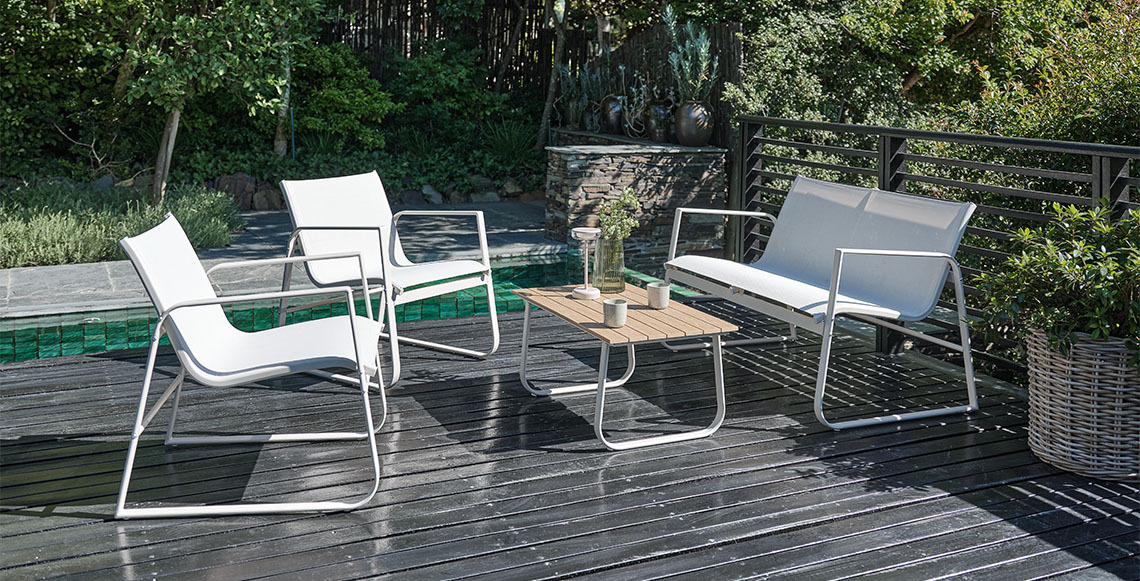
What is the best material for garden furniture?
The short answer is: It depends on several factors, including personal preference, budget, durability, and style. When deciding on the right material for your garden furniture, there are several aspects that you should consider – namely practicality, maintenance, durability, weather resistance, affordability, comfort and style – and these are detailed in the following sections.
1. Practicality
Practicality, functionality, and convenience may be important aspects to consider early in the process of choosing garden furniture materials. Some materials lend themselves to be more functional, for example, plastic garden chairs that may be stackable or foldable, or modular lounge sofas that can be arranged differently depending on your needs. Considering these factors may help you effectively utilise your outdoor space, especially if you are looking for garden furniture for a balcony or small garden.
2. Maintenance
When choosing the material for your new garden furniture, maintenance is a crucial factor to consider. Proper maintenance ensures the durability and attractiveness of your outdoor furniture over the years.
For natural hardwood, regular maintenance involves applying oil to provide a protective coating that makes the wood resistant to decomposition, insect damage, and weathering. On the other hand, metals such as aluminium are generally maintenance-free, requiring only occasional cleaning with a damp cloth to maintain their appearance.
3. Durability
Closely tied to maintenance, durability is a key consideration when choosing outdoor furniture. While garden furniture is generally constructed to be quite durable, it is important to evaluate what maintenance tasks are required to ensure its longevity.
Consider whether you prefer options that will last for a long time without maintenance, such as aluminium, or if you are willing to invest time in regular cleaning and oiling to prolong the lifespan of hardwoods.
4. Weather resistance
Another vital consideration for garden furniture materials is weather resistance, as outdoor furniture is constantly exposed to sunlight, rain, wind, and temperature changes. Options such as teak, polyrattan, and aluminium may offer excellent weather and UV resistance, while untreated wood or certain fabrics may need more maintenance to withstand the elements effectively.
5. Affordability
When considering garden furniture materials, affordability is an important factor to consider. More common and widely available materials such as plastics can offer cost-effective options for outdoor furniture, and they are usually highly durable and resistant to weathering. This makes them a practical choice for the budget-conscious individual.
On the other end of the scale, hardwoods like teak have become increasingly rarer materials, and as a result, often more expensive. When making your decision on which garden furniture to go for, it is essential to weigh the cost of the materials, and thus the furniture, against their longevity and required maintenance.
6. Comfort and style
In addition to practical considerations, comfort and style are immensely important when deciding on which garden furniture to purchase. Naturally, you should opt for materials that appeal to you. Some are drawn to the natural warmth and beauty of hardwoods like teak, eucalyptus, or acacia, while others prefer the sleek, modern look of metals such as aluminium and stainless steel.
It is also worth considering that different materials inherently offer varying levels of comfort. Fabrics and materials like rope provide a softer and more inviting seating experience than hard surfaces such as metal and wood, for which you may want to invest in cushions. Ultimately, finding the right balance between comfort, aesthetics, and required maintenance ensures that the garden furniture you choose not only looks great but also serves as a comfortable and enjoyable outdoor retreat for years to come.
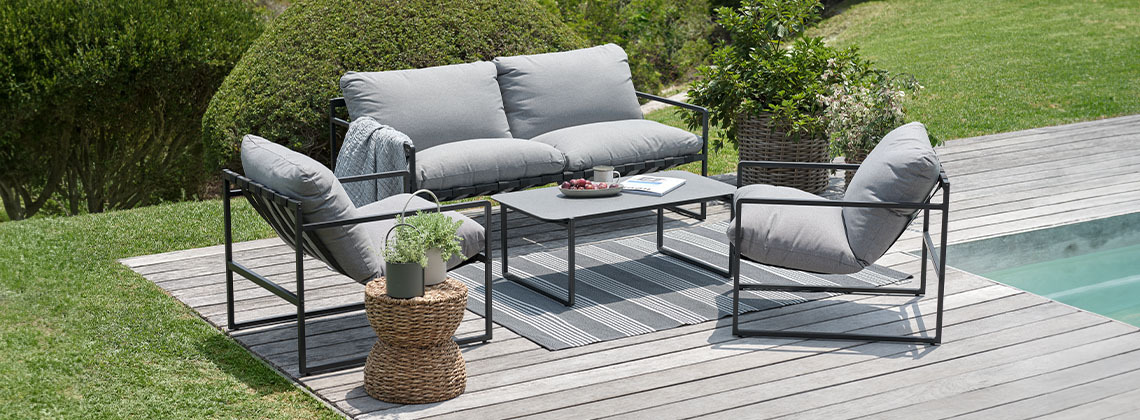
Many garden furniture items, such as the RISVEDEN lounge set above, are made with multiple materials. In the following sections, we delve deeper into the most common garden furniture materials. If you are drawn to a piece of garden furniture within our assortment, you can check out its material composition in our online store.
Hardwood
Hardwood is a timeless, classic, and eternally popular material choice for garden furniture. In our assortment, you will find a wide variety of hardwood options, each offering its own unique take on beautiful furniture for your outdoor areas:
- Teak
Highly coveted through the ages, teak has a beautiful, warm, and rich appearance, and as it weathers over time, it develops an attractive silver-grey patina if left untreated. Due to its high oil content, the hardwood is highly durable and naturally resistant to deterioration, insect damage, moisture damage, and weathering. It requires regular maintenance to maintain its appearance and durability. - Eucalyptus
Similar in appearance to teak, eucalyptus is well known for its strength and resilience, making it well-suited for outdoor use. Compared to teak, eucalyptus has a warm, reddish-brown appearance, and it is an option that is generally more affordable without compromising an attractive appearance or durability. Like other hardwoods, eucalyptus requires regular maintenance to preserve its longevity and appearance. - Acacia
Acacia hardwood is a popular choice for garden furniture due to its exceptional durability and natural resistance to deterioration and weathering. Like eucalyptus, acacia is an attractive option for those seeking high-quality outdoor furniture at reasonable prices. Regular cleaning with mild soap and water and an occasional application of a protective oil or sealant will keep acacia beautiful and prolong its lifespan. - Beech
Solid beech is a versatile and durable option for outdoor furniture, well known for its strength and natural appeal. With excellent stability and resistance to warping, beech wood is not only used in furniture construction but also for crafting garden parasols. While occasional maintenance may be necessary to preserve its appearance, the durability and timeless charm of beech make it a popular choice for outdoor hardwood furniture.
Overall, hardwood is prized for its natural expression and attractive appearance, and garden furniture made with this material enhances the overall aesthetics of gardens, patios, and balconies. If you do not mind the required maintenance, hardwood is a great choice that will last a very long time.
100 % of JYSK's garden assortment is FSC® certified, which is your assurance that any garden furniture or decor that you purchase in our stores will not be detrimental to the health of the world's forests (FSC® N001715). Learn more about our commitment to the Forest Stewardship Council®.
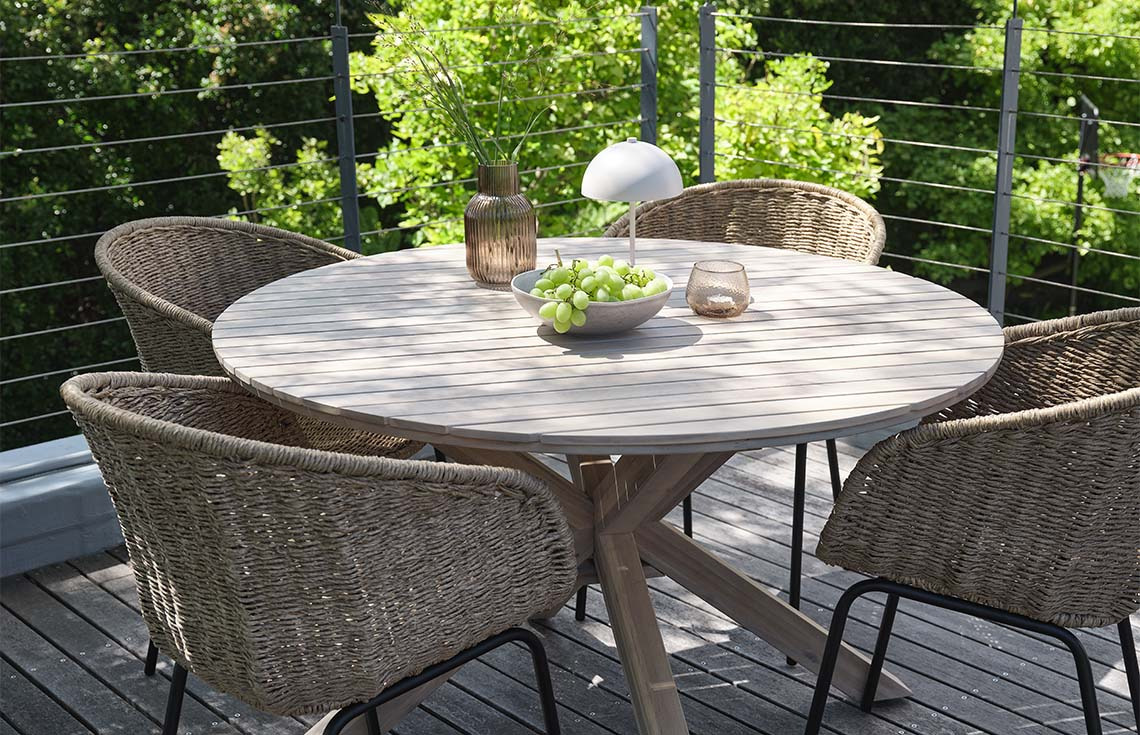
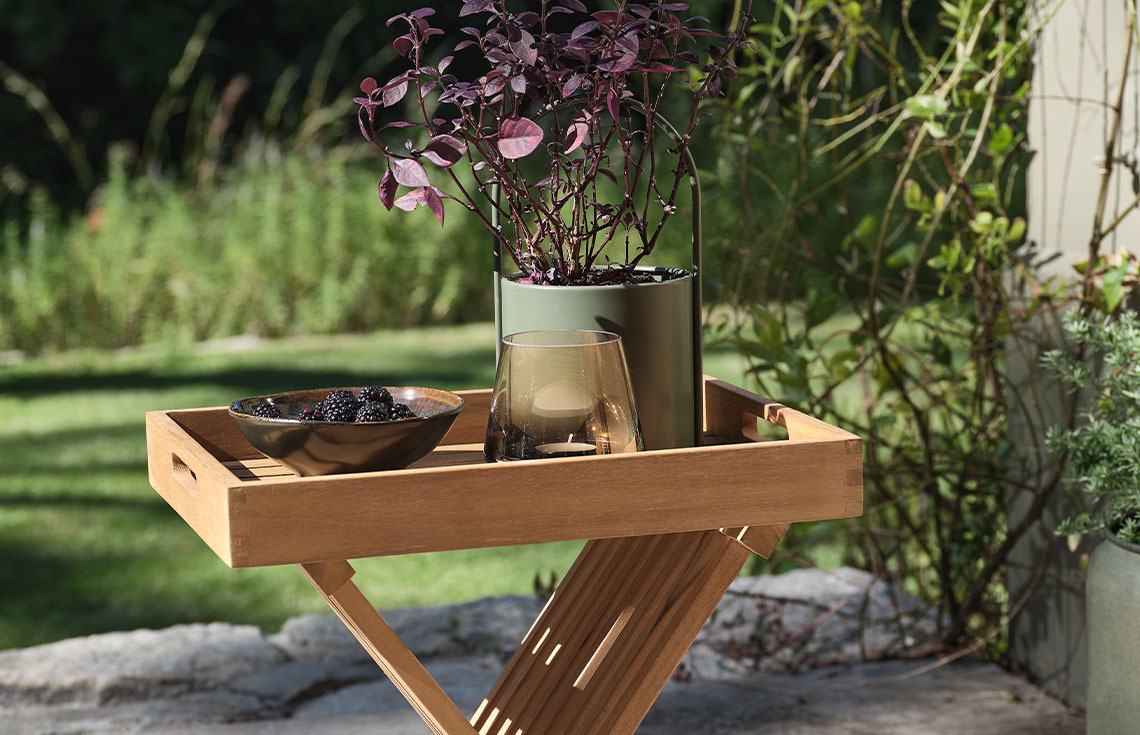
Artificial wood
Artificial wood, also known as artwood, is a popular and versatile material extensively used in outdoor furniture, and you will also find a large variety of garden furniture and outdoor decor made with artificial wood in our assortment. This durable material is primarily composed of polystyrene and is designed to mimic the appearance and texture of natural wood.
Artificial wood is often UV protected, ensuring colorfastness and resistance to fading even under prolonged exposure to sunlight. When considering new garden furniture, artificial wood is a compelling option that offers durability and convenience due to not needing regular upkeep.
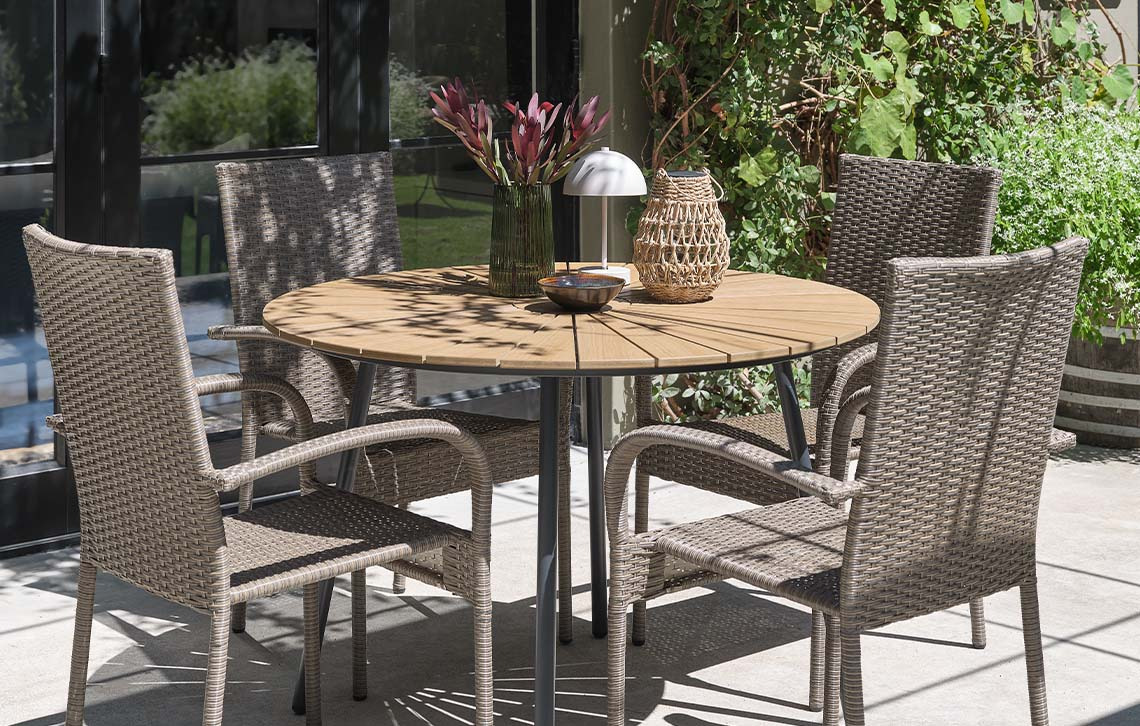
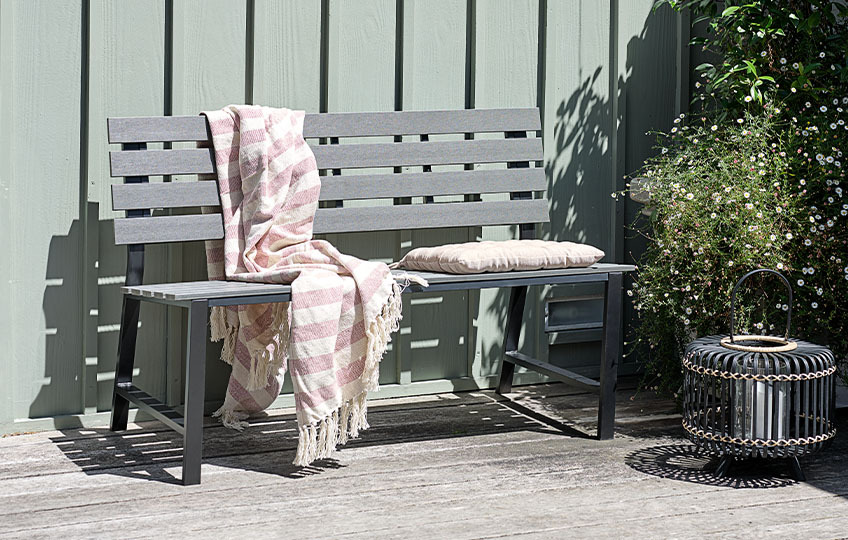
Composite wood
Composite wood, also known as engineered wood, is a versatile material that is widely used in outdoor furniture as well as patios, decks, and fences. It is made by combining wood fibres or particles with plastics to create a sturdy, durable, and highly resistant alternative to traditional hardwood materials. Composite wood offers the natural look and feel of wood while providing enhanced resistance to moisture, deterioration, insect damage, and weathering, making it an ideal choice for outdoor use. If you want your garden furniture to require minimal maintenance for easy upkeep and long-term durability, composite wood may be the right choice for you.
Some pieces of our garden furniture assortment are made with DURAWOOD®, a composite wood made from FSC-certified hardwood fibres and polypropylene plastic.
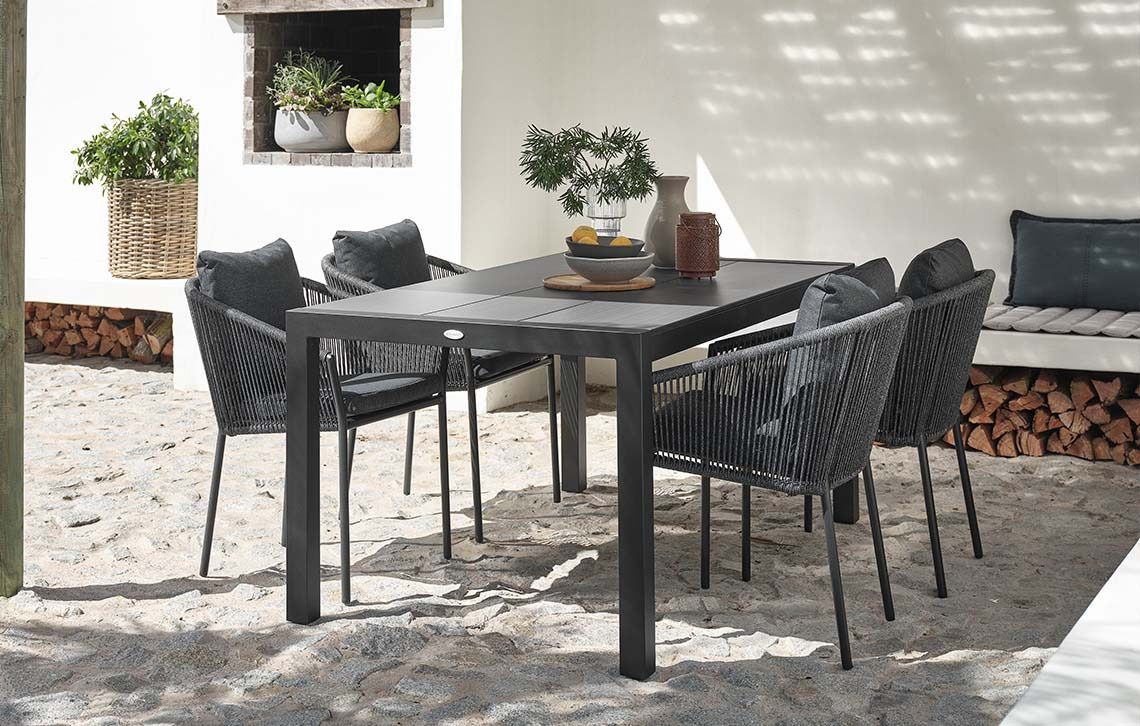
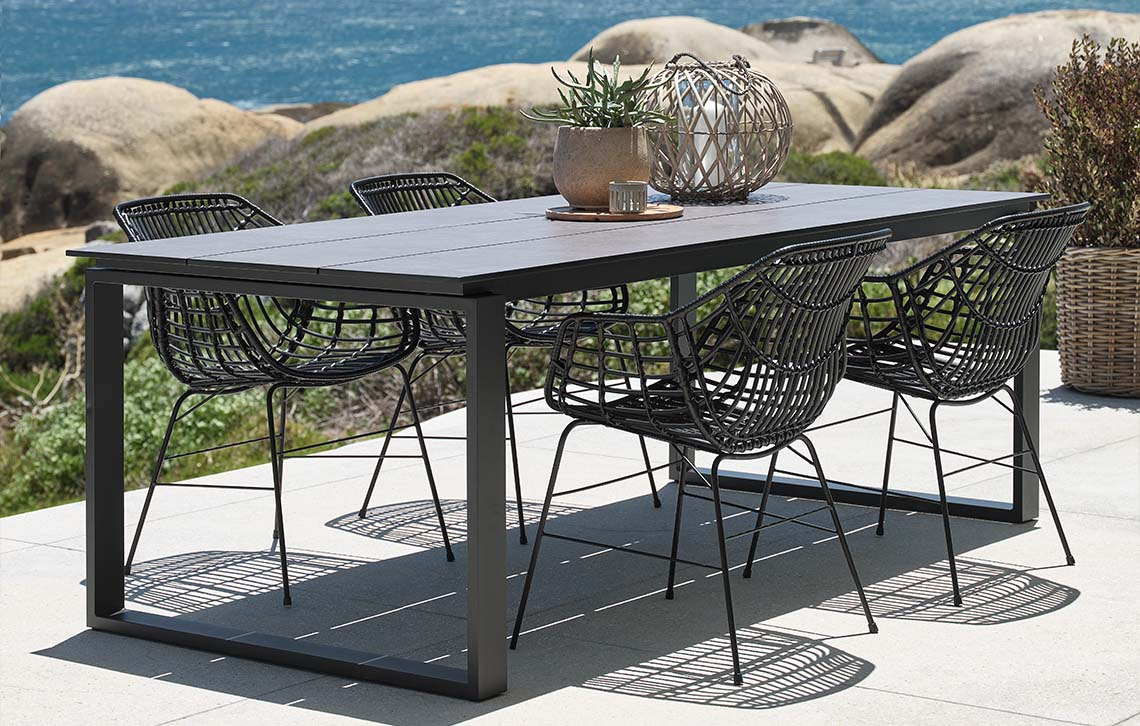
Rattan
Rattan is a popular choice for lounge furniture, suitable for both indoor and occasional outdoor use. This natural material is admired for its beauty and unique appearance, adding a cosy and inviting atmosphere to outdoor spaces. However, it is important to highlight that furniture made from rattan is typically not resistant to moisture, rain, or general weathering.
Our LISELEJE collection, crafted from rattan, is well-suited for conservatories and covered patios but may not withstand perpetual outdoor exposure. Rattan is also commonly used for outdoor items such as garden planters, which may be fully weatherproof and even frost-hardy. For those seeking the aesthetic appeal of natural rattan with added resistance to the elements, polyrattan or artificial rattan is an ideal alternative that you can learn more about in the next section.
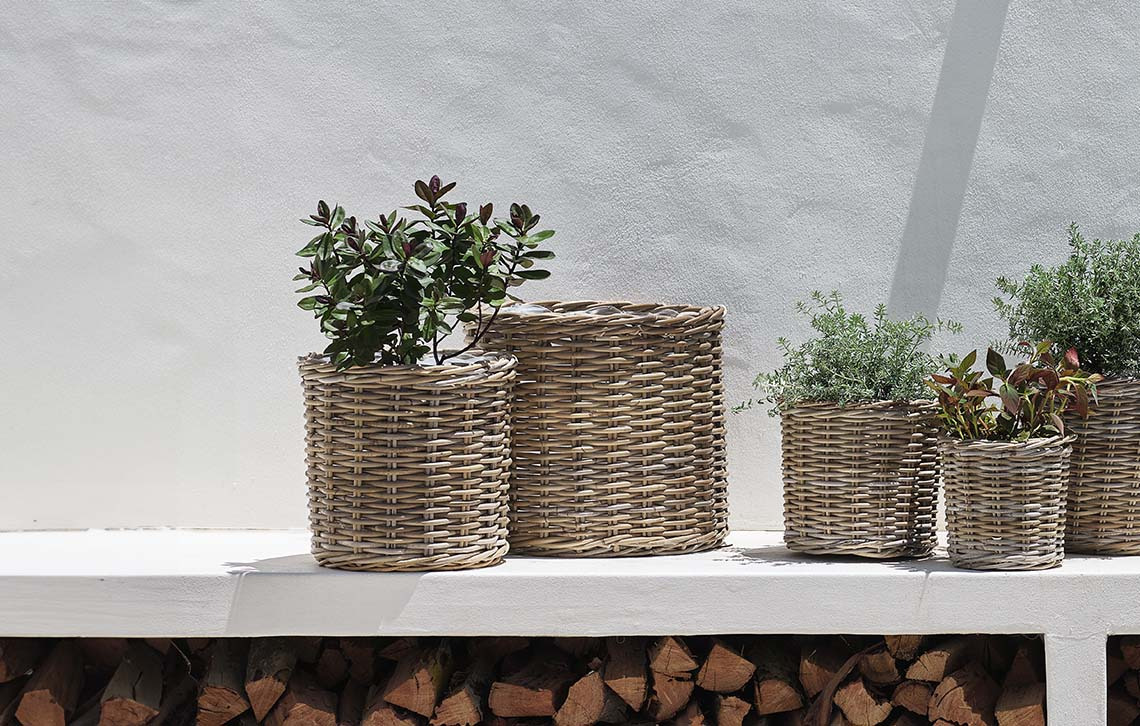
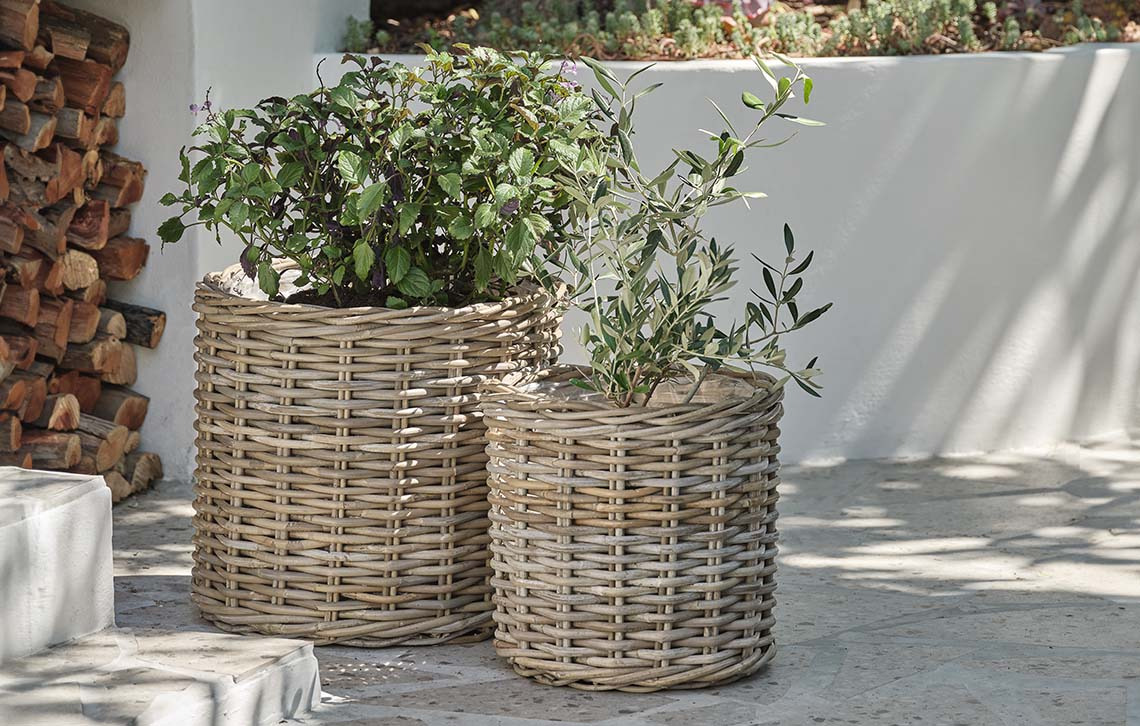
Polyrattan (synthetic rattan)
Polyrattan, also known as artificial, synthetic, or plastic rattan, is a popular choice for garden furniture due to its durability and resistance to weathering. Made from synthetic fibres such as polyethylene, polyrattan mimics the appearance and texture of natural rattan while offering greatly enhanced weather resistance.
Unlike genuine rattan, garden furniture made from polyrattan is highly resistant to moisture, rain, and UV rays, making it a fantastic alternative to natural rattan and suitable for long-term outdoor use. Another benefit of polyrattan its minimal maintenance requirement; it can easily be cleaned using mild soap and water.
Polyrattan is an excellent choice for those seeking durable and low-maintenance garden furniture that can withstand the rigours of outdoor living. Explore our large selection of outdoor furniture made with polyrattan to find the perfect piece for your outdoor space.
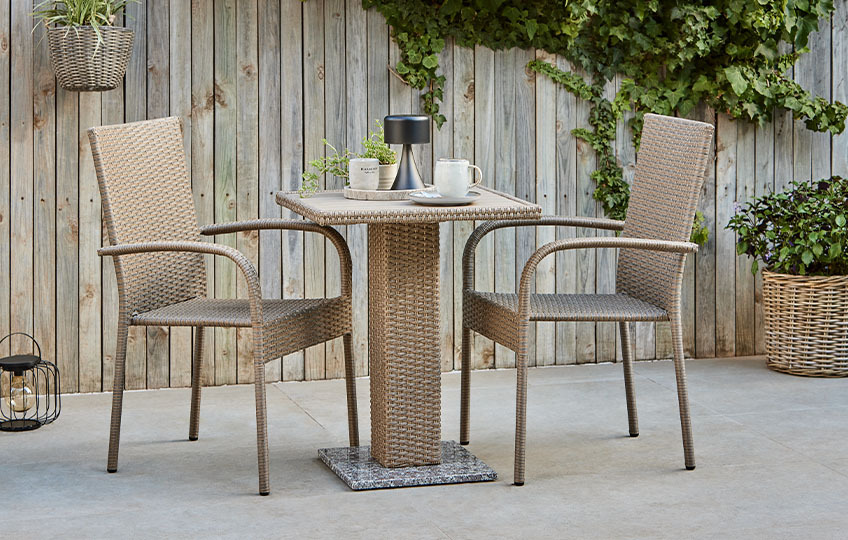
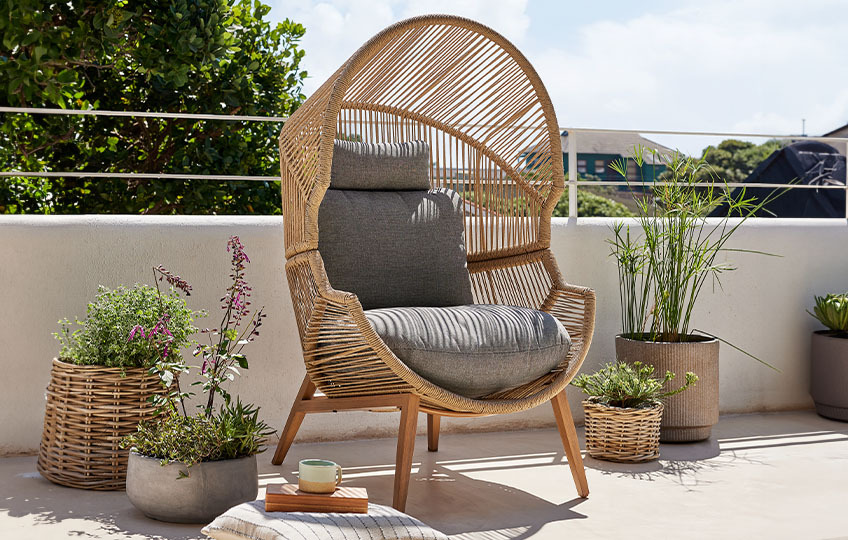
Plastic (polypropylene and polyethylene)
Plastic, which includes materials like polypropylene and polyethylene, is one of the most widely used materials in numerous applications due to its exceptional strength, durability, flexibility, resistance to weathering, and affordability. As a result, plastic is also a popular material for garden furniture, where plastic is used for items such as garden chair seats, table surfaces, armrests, and even as a covering for aluminium frames. Additionally, plastic furniture is generally lightweight and easy to move around, providing flexibility in arranging outdoor seating areas.
You will find many options for garden furniture made with plastic in our assortment, and you are interested in learning more about the specific type of plastic and which parts the material is used in, check out the product description of each piece of furniture in our online store.
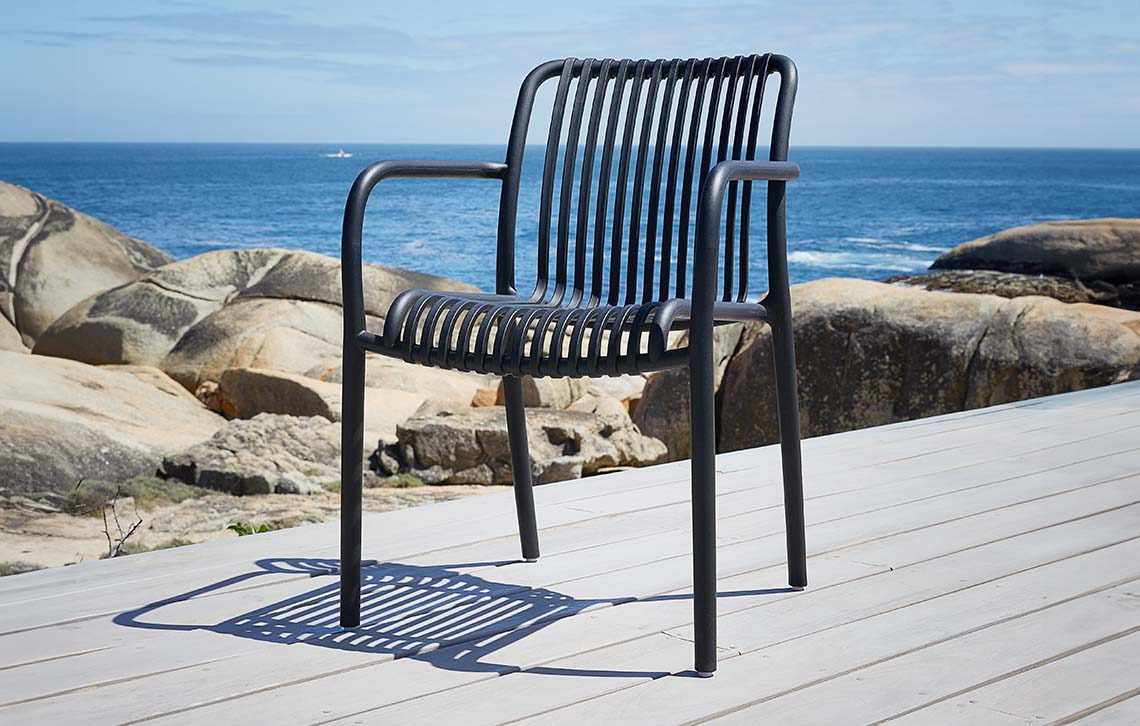
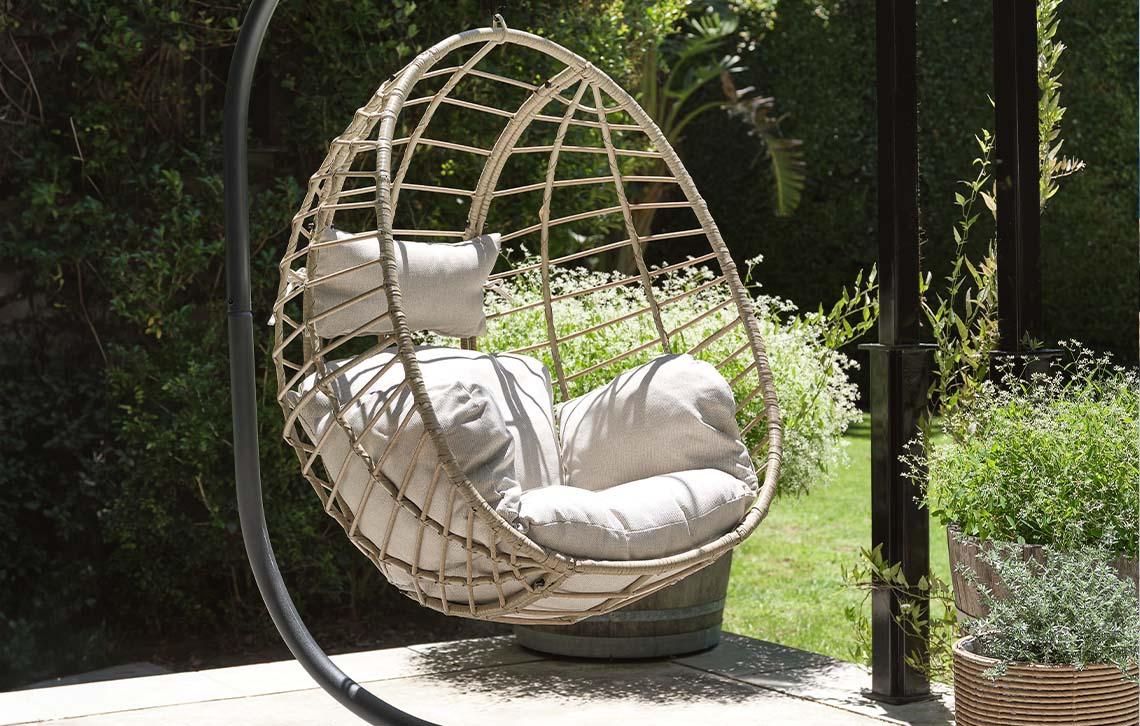
Aluminium and steel
Many pieces of garden furniture feature frames or supporting structures made from metals such as aluminium and steel, providing strong and resilient structures that ensure long-term stability and durability.
When used for both the internal structure and external design, metal-framed garden furniture tends to have a modern, minimalist, and sleek aesthetic. Aluminium, in particular, is highly resistant to corrosion and weathering, making it ideal for continuous outdoor use as it maintains its appearance and integrity over time.
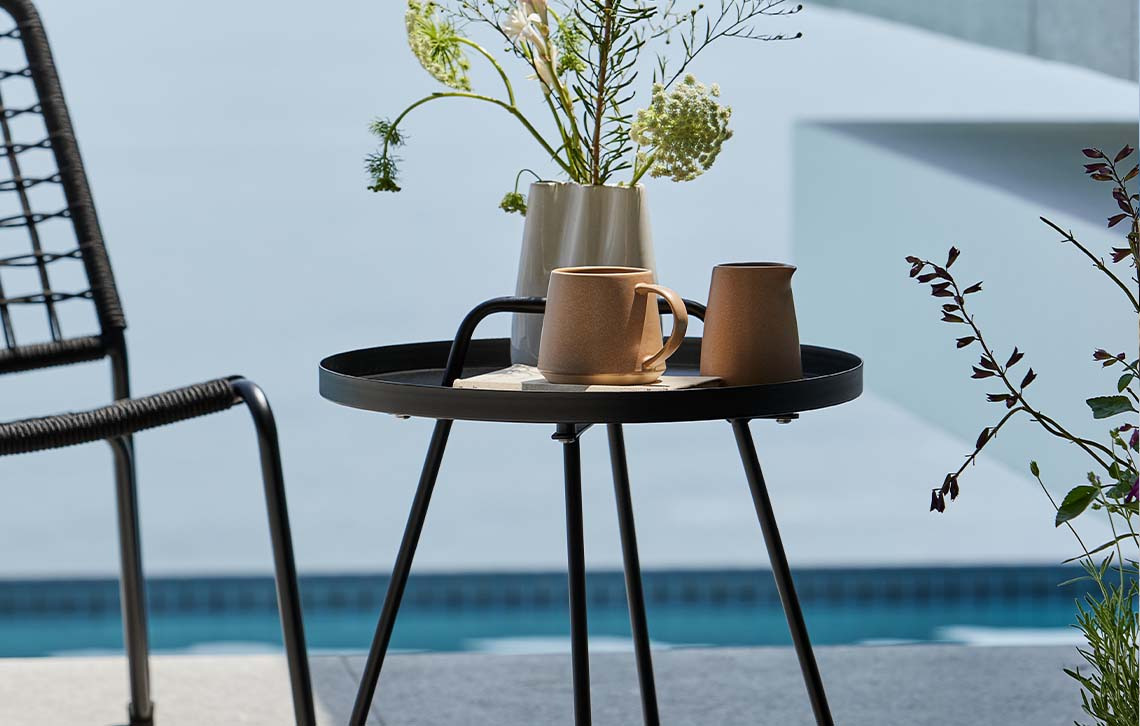
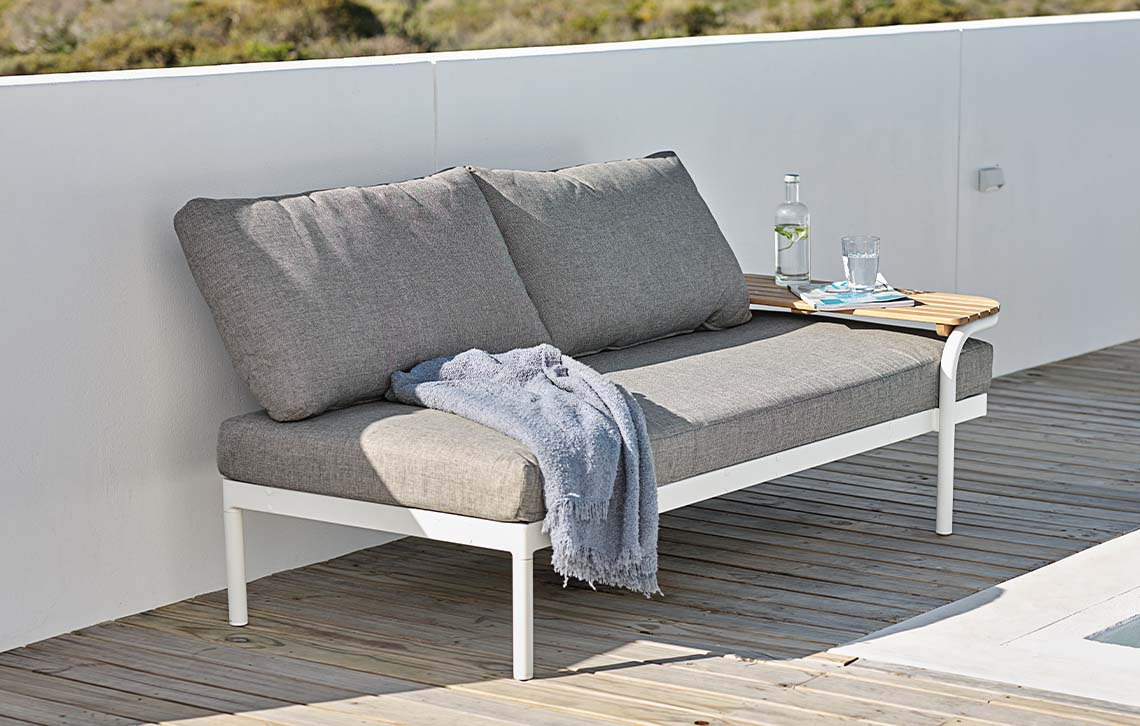
Fibre cement
In recent times, fibre cement has become increasingly popular as a material in garden furniture, especially as table tops for outdoor dining tables, side tables, and lounge tables. Typically made from a blend of cement, cellulose fibres, and additives, it offers maintenance-free durability alongside sleek, minimalist design. Its flexibility allows for various shapes and designs, making it a versatile choice for outdoor settings. Explore our selection of garden furniture made with fibre cement.
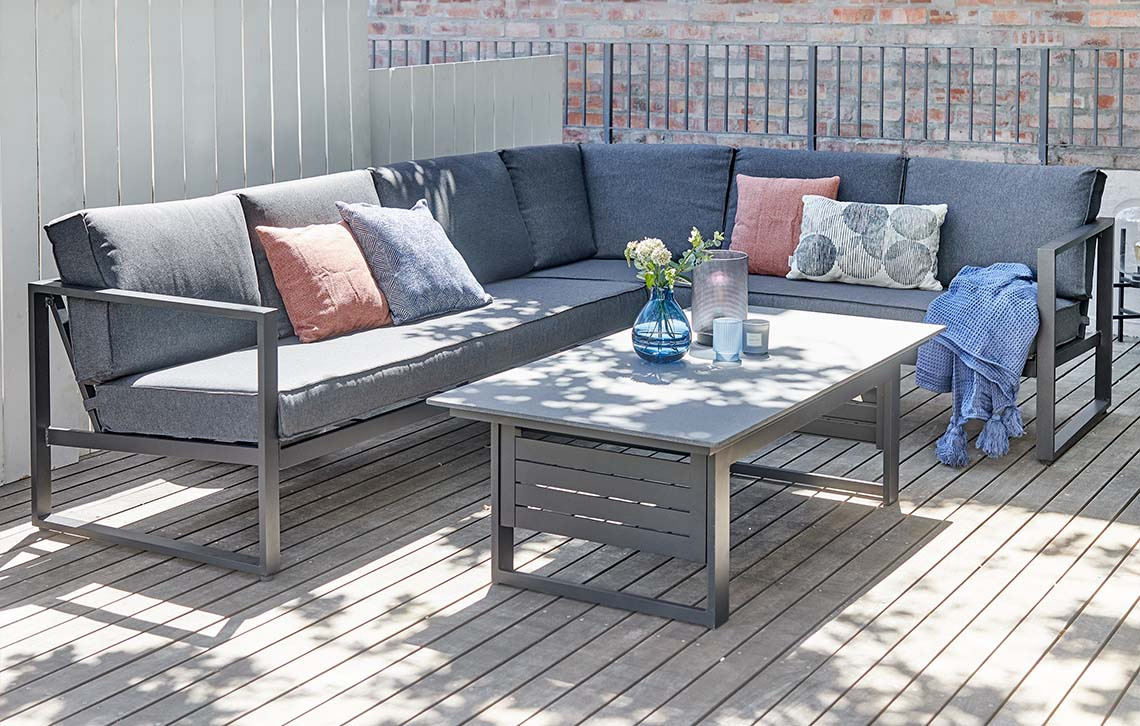
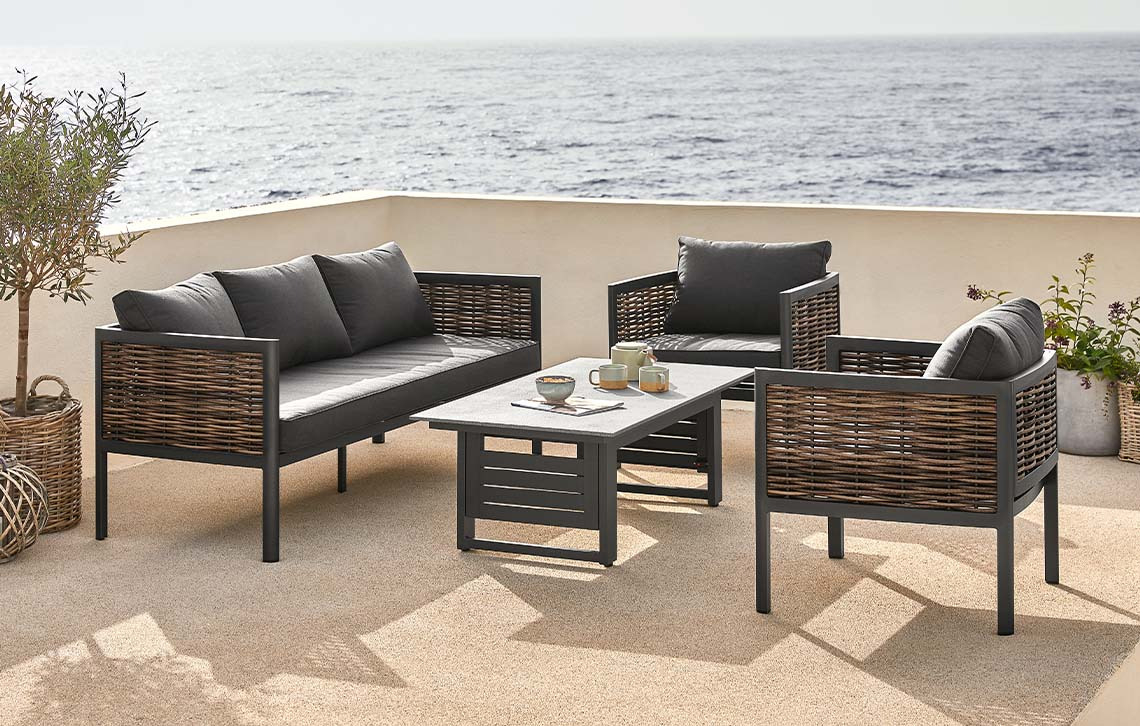
Textiles and fabrics
Textiles and fabrics serve as integral components in many pieces of garden furniture. Commonly crafted from blends of cotton, polyester, or polyethylene, these materials are used in a variety of items such as seat cushions, throws, rope backing, and garden parasols. Textiles and fabrics for outdoor use are specifically designed to offer comfort, style, and long-term durability, generally capable of withstanding exposure to the elements regardless of their composition.
If you are interested in learning more about the specific fabrics used in our assortment, you can find this information in the product descriptions of each piece of garden furniture in our online store.
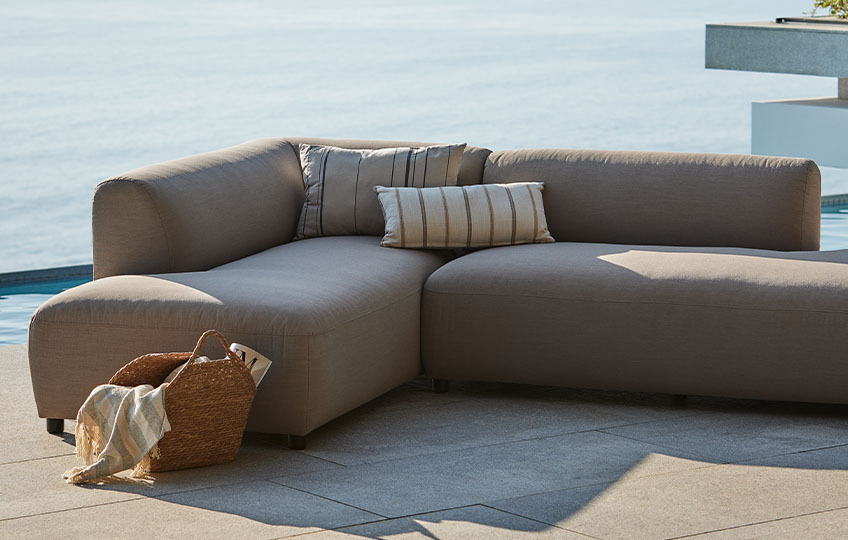
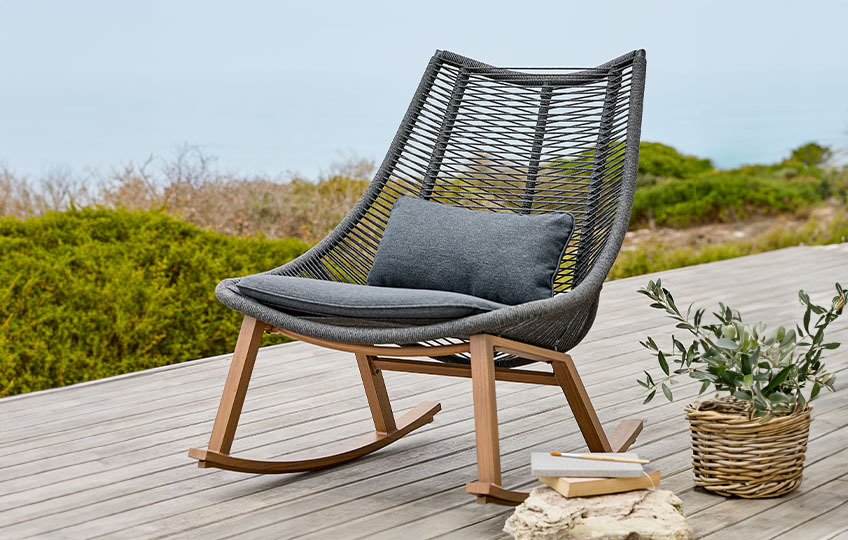
Cosmetic coverings (metal foil etc.)
In garden furniture design, cosmetic coverings are used to offer both durability and aesthetic appeal. With these coverings, you can conceal underlying materials or imitate different textures, providing flexibility in the ultimate look of your garden furniture. For example, the IBSTED garden parasol has a foil covering that makes the metal pole appear more wood-like, and many pieces of garden furniture utilise polyrattan to conceal an internal metal construction.
Consider how these cosmetic coverings can help you achieve your preferred aesthetics while still giving you the durability and low maintenance that some materials bring.
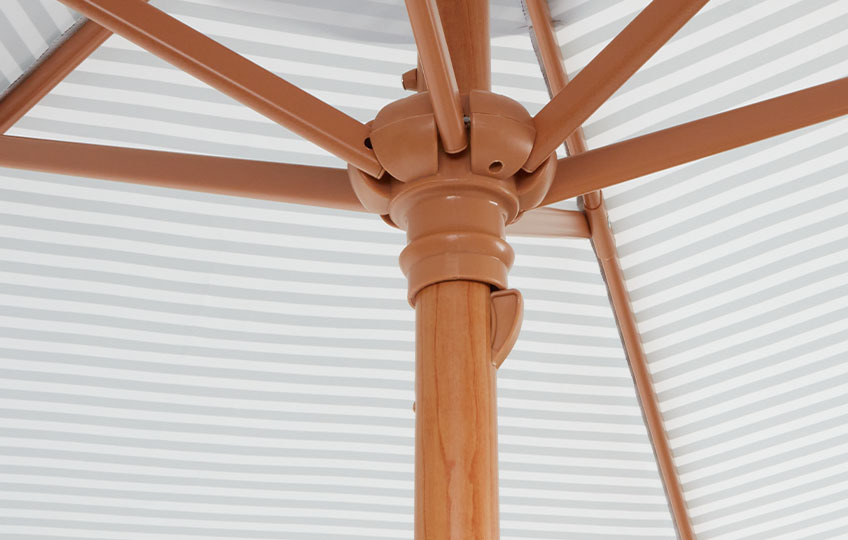
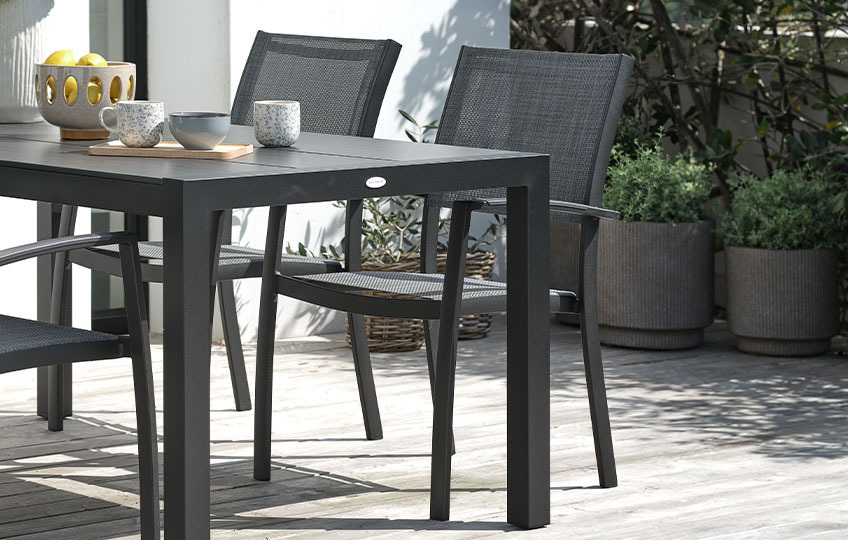
As evident from this guide, selecting which material your new garden furniture is made with involves considering various factors, each with its own significance. Each material offers unique advantages in terms of practicality, maintenance, durability, weather resistance, affordability, comfort, and aesthetics. Exploring these aspects can help you make an informed decision, and the right one for you and your needs.
See our full garden furniture assortment
For more information on specific garden furniture materials, visit our online store or ask our staff at your local JYSK store for guidance. You can also reach out to us in the chat field on JYSK.ie. Some of our garden furniture favourites are highlighted below.
Note: Some assortment not available in the Republic of Ireland
